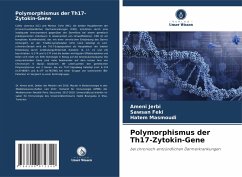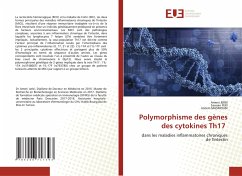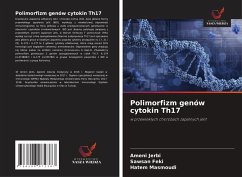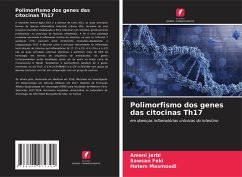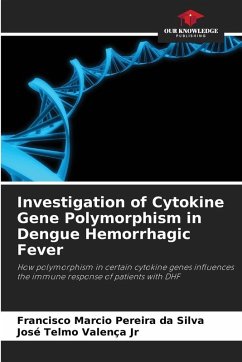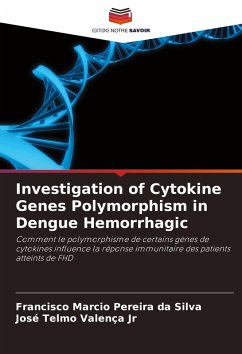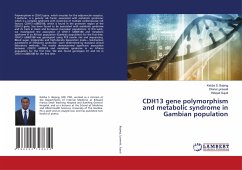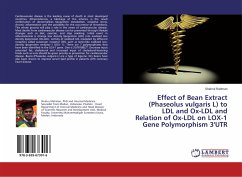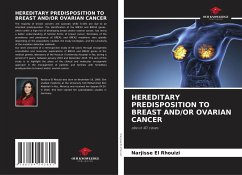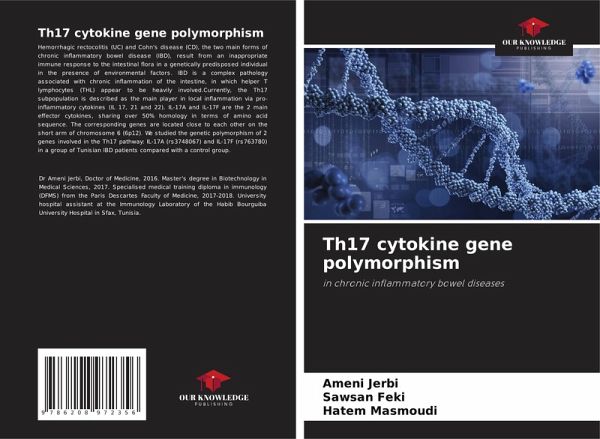
Th17 cytokine gene polymorphism
in chronic inflammatory bowel diseases
Versandkostenfrei!
Versandfertig in 6-10 Tagen
40,99 €
inkl. MwSt.

PAYBACK Punkte
20 °P sammeln!
Hemorrhagic rectocolitis (UC) and Cohn's disease (CD), the two main forms of chronic inflammatory bowel disease (IBD), result from an inappropriate immune response to the intestinal flora in a genetically predisposed individual in the presence of environmental factors. IBD is a complex pathology associated with chronic inflammation of the intestine, in which helper T lymphocytes (THL) appear to be heavily involved.Currently, the Th17 subpopulation is described as the main player in local inflammation via pro-inflammatory cytokines (IL 17, 21 and 22). IL-17A and IL-17F are the 2 main effector c...
Hemorrhagic rectocolitis (UC) and Cohn's disease (CD), the two main forms of chronic inflammatory bowel disease (IBD), result from an inappropriate immune response to the intestinal flora in a genetically predisposed individual in the presence of environmental factors. IBD is a complex pathology associated with chronic inflammation of the intestine, in which helper T lymphocytes (THL) appear to be heavily involved.Currently, the Th17 subpopulation is described as the main player in local inflammation via pro-inflammatory cytokines (IL 17, 21 and 22). IL-17A and IL-17F are the 2 main effector cytokines, sharing over 50% homology in terms of amino acid sequence. The corresponding genes are located close to each other on the short arm of chromosome 6 (6p12). We studied the genetic polymorphism of 2 genes involved in the Th17 pathway: IL-17A (rs3748067) and IL-17F (rs763780) in a group of Tunisian IBD patients compared with a control group.



